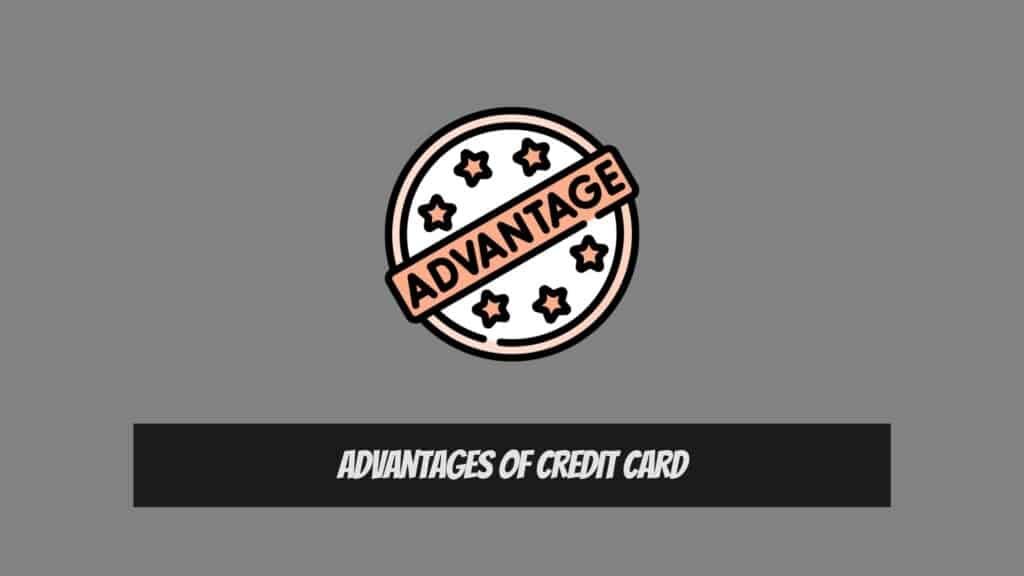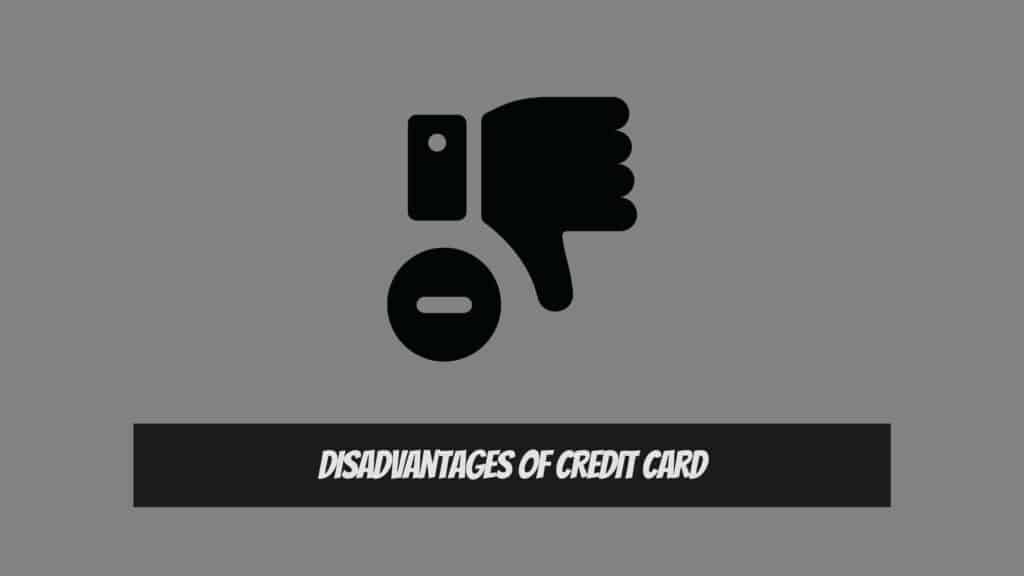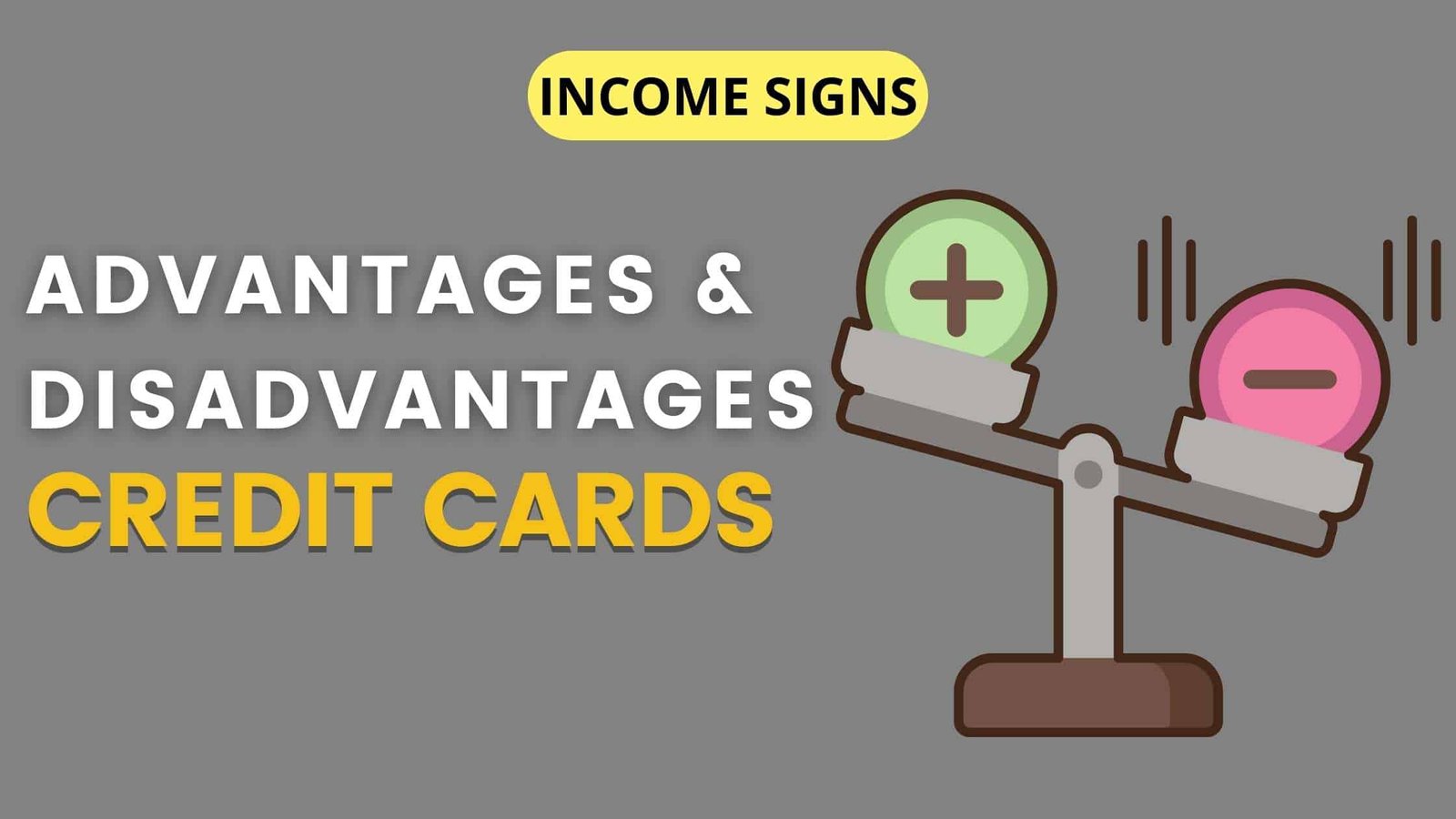Credit cards give you access to money and convenience, but they also come with some risks and disadvantages. Before you apply for a credit card, it’s important to understand the benefits and drawbacks of using them.
Advantages of Credit Card

Build Your Credit Score
Credit cards are a great tool for building and maintaining a healthy credit score. This not only makes it easier to get better loans in the future but can even help with employment opportunities, as many employers check credit scores when recruiting for certain positions.
When you use your card responsibly, such as paying off the balance every month before the due date or never exceeding your credit limit, this generally results in your credit score gradually improving over time.
Moreover, some cards have bonus point systems that reward cardholders with points for every dollar spent that can be used later towards purchases or travel perks.
Earn Rewards
Credit cards offer a range of advantages, but perhaps the most enticing one is the ability to earn rewards. By using a credit card for everyday purchases, users can quickly accumulate points which can be applied towards items such as hotel stays, flights, cash back, and more.
Depending on the type of credit card you choose, some travel rewards may even come with additional perks like insurance on car rentals or complimentary tickets to theme parks. Most credit cards also give users access to exclusive offers and discounts from their partners that aren’t available elsewhere.
For frequent travelers or those who enjoy getting something back in return for their spending habits, using a credit card is one of the best financial moves they can make.
Get Protection from Fraud
Credit cards offer incredibly useful protection from fraud. Credit card companies monitor spending patterns and flag suspicious activity for fraudulent charges. This is a great way to protect consumers from having their identity stolen or hard-earned money taken from them as unauthorized charges can be canceled before any damage is done.
Even if there are fraudulent charges, many credit cards will reimburse customers for the full amount lost. This financial peace of mind can be greatly beneficial, saving customers from having to pay out of pocket for fraudulent charges or spending time and effort with banks to dispute losses due to unauthorized purchases.
Access Your Money in an Emergency
Credit cards are a valuable form of payment to have on hand in the event of an emergency. Having one available can give you access to quick cash when you need it, even if your bank account doesn’t have enough. It’s always a great idea to prepare for a potential financial crisis by having multiple options available.
Disadvantages of Credit Card

High-Interest Rates
Credit cards are convenient, but they can come with steep costs if used irresponsibly. When payments are late or the balance is not paid off quickly, the high-interest rates associated with credit cards will start to add up very quickly.
Interest rates on credit cards often range between 15 and 25 percent, meaning even small purchases made without a plan to pay the balance in full can start to add up alarmingly fast and become burdensome long-term financial obligations.
Many consumers find themselves in debt due to these high-interest costs, which can lead to significant financial hardship as finances become stretched too thin.
Annual Fees
Credit cards may be beneficial but they also have some disadvantages that can be costly. One of those is the annual fee that you’ll be required to pay each year you hold the credit card.
Depending on the type of card and issuer, these annual fees can range from a few dollars to a couple hundred. If you’re not benefiting greatly from the various features of the card, such as cash-back rewards, travel points, or special financing offers, then this could take away any potential savings you were hoping to receive.
It’s important to weigh the pros and cons carefully when deciding if an annual fee is worth it for your financial situation.
Temptation to Overspend
Many people find it hard to resist the temptation of overspending with their credit card due to its easy access and lack of currency in physical form. While credit cards may offer convenience and even rewards on purchases, it can be a slippery slope to debt if users don’t have strict rules around budgeting and shopping within financial limits.
Using credit cards instead of cash brings the increased risk of accruing interest on large unpaid balances and eventually has a negative effect on your credit score. It is important for those who opt for this payment method to remain aware of their spending patterns and watch out for signs that indicate they are beginning to fall into debt.
Risk of Fraud and Identity Theft
Credit cards can be incredibly convenient when it comes to making purchases, but unfortunately, there are risks associated with using them. One of the biggest concerns for consumers is the risk of fraud and identity theft.
If a thief manages to get their hands on your credit card information, they could access and spend your money, wracking up hundreds or even thousands of dollars in debt that you’re legally obligated to pay. Criminals may be able to use stolen credit card information to commit other fraudulent activities such as accessing online accounts or taking out loans or lines of credit.
To minimize the risk of fraud and identity theft, it is important to safeguard credit card details at all times, use complex passwords for online accounts, keep receipts safe and secure after each purchase, double-check statements regularly for suspicious activity and never share financial information with strangers.
Difficulty Getting Out of Debt
When it comes to getting out of debt, credit cards can pose some significant challenges due to high-interest rates and fees. As interest accumulates, it can quickly overwhelm a user’s budget, making repayment difficult and time-consuming.
Late payments and damage to an individual’s credit score may result in additional fees being attached to the balance. The key is for credit card users to maintain a plan for paying off their balances each month otherwise, they could find themselves in more debt than they started with.
Conclusion – Advantages and Disadvantages of Credit Card
In conclusion, credit cards can be a useful financial tool, but they also come with their own set of risks and responsibilities. While credit cards can offer convenience, rewards, and the opportunity to build credit, they can also lead to high-interest rates, fees, and debt if not used responsibly.
It is important to carefully consider the advantages and disadvantages of credit card use before deciding to apply for one and to use credit cards responsibly if you do choose to use them.
